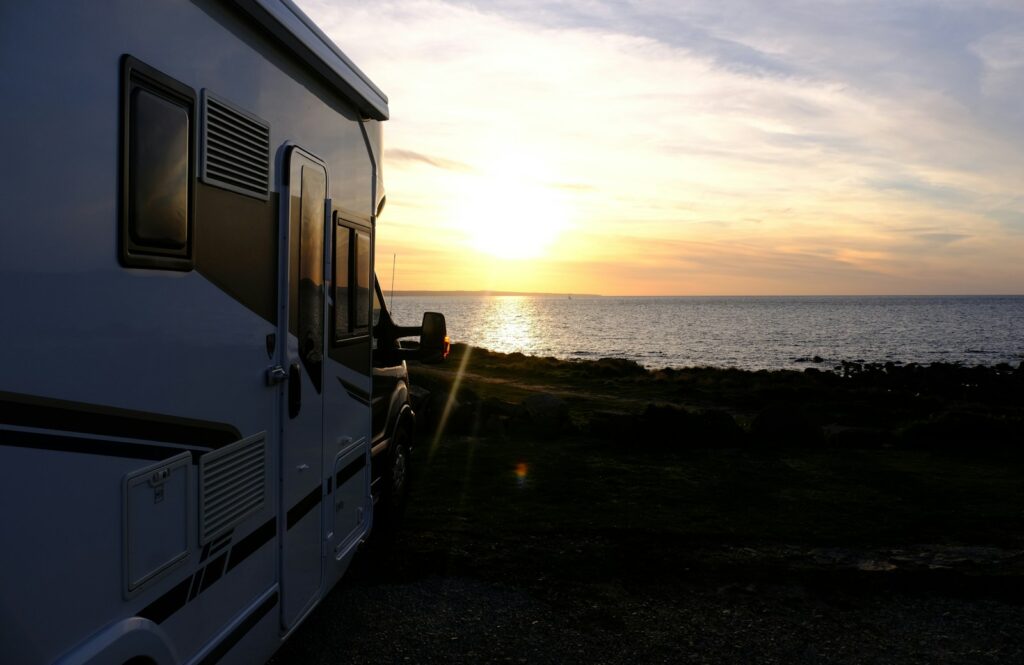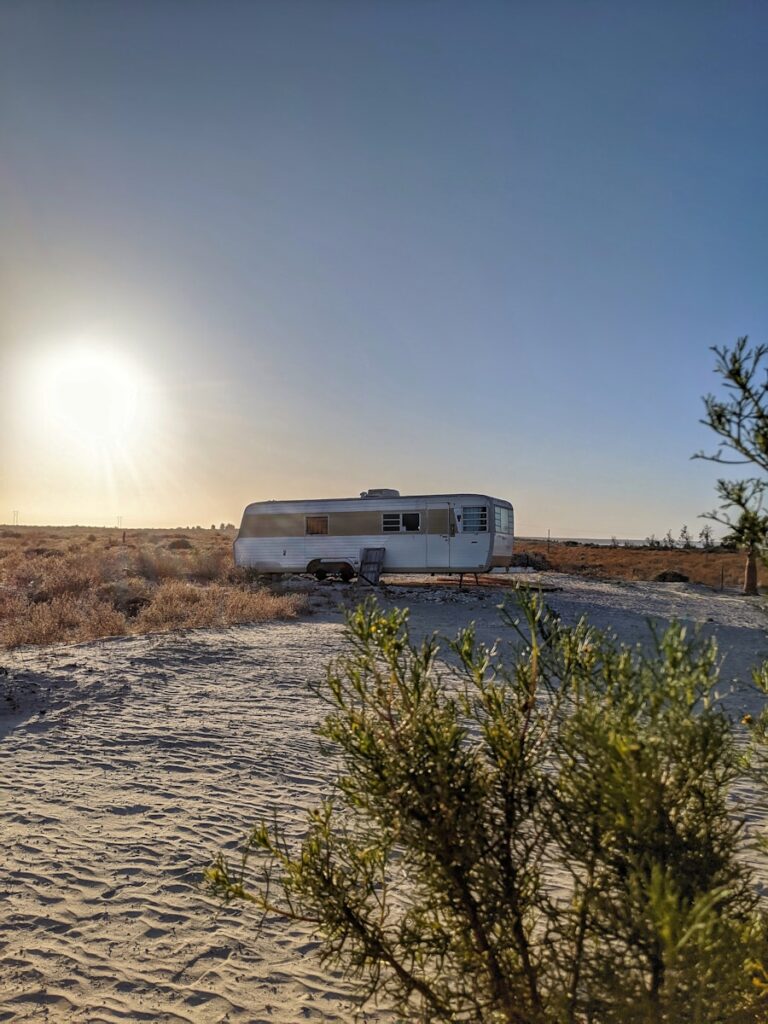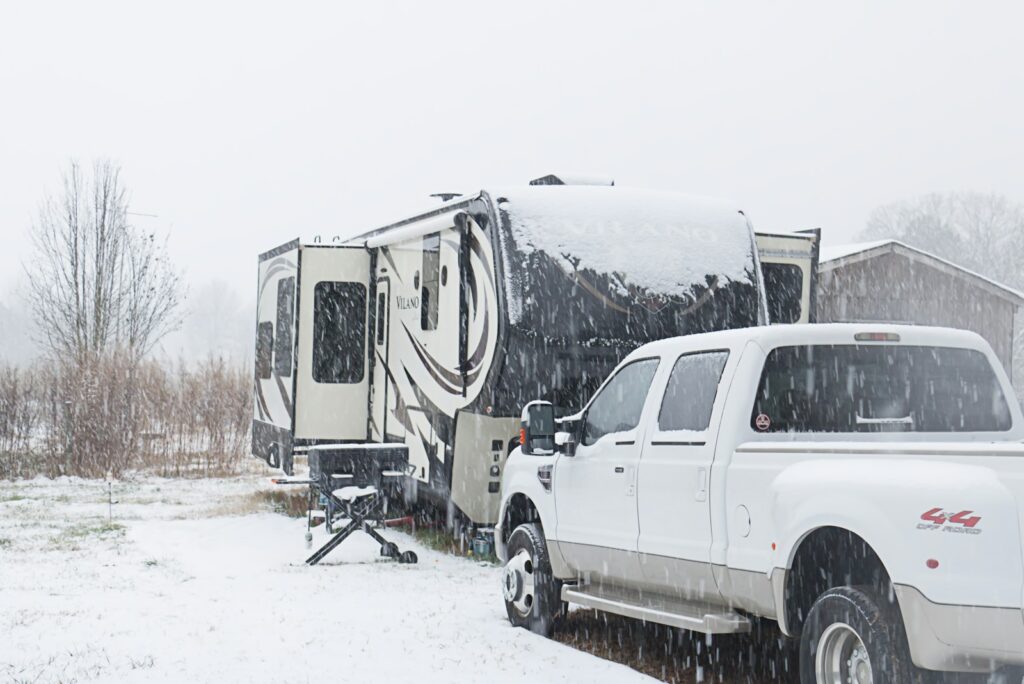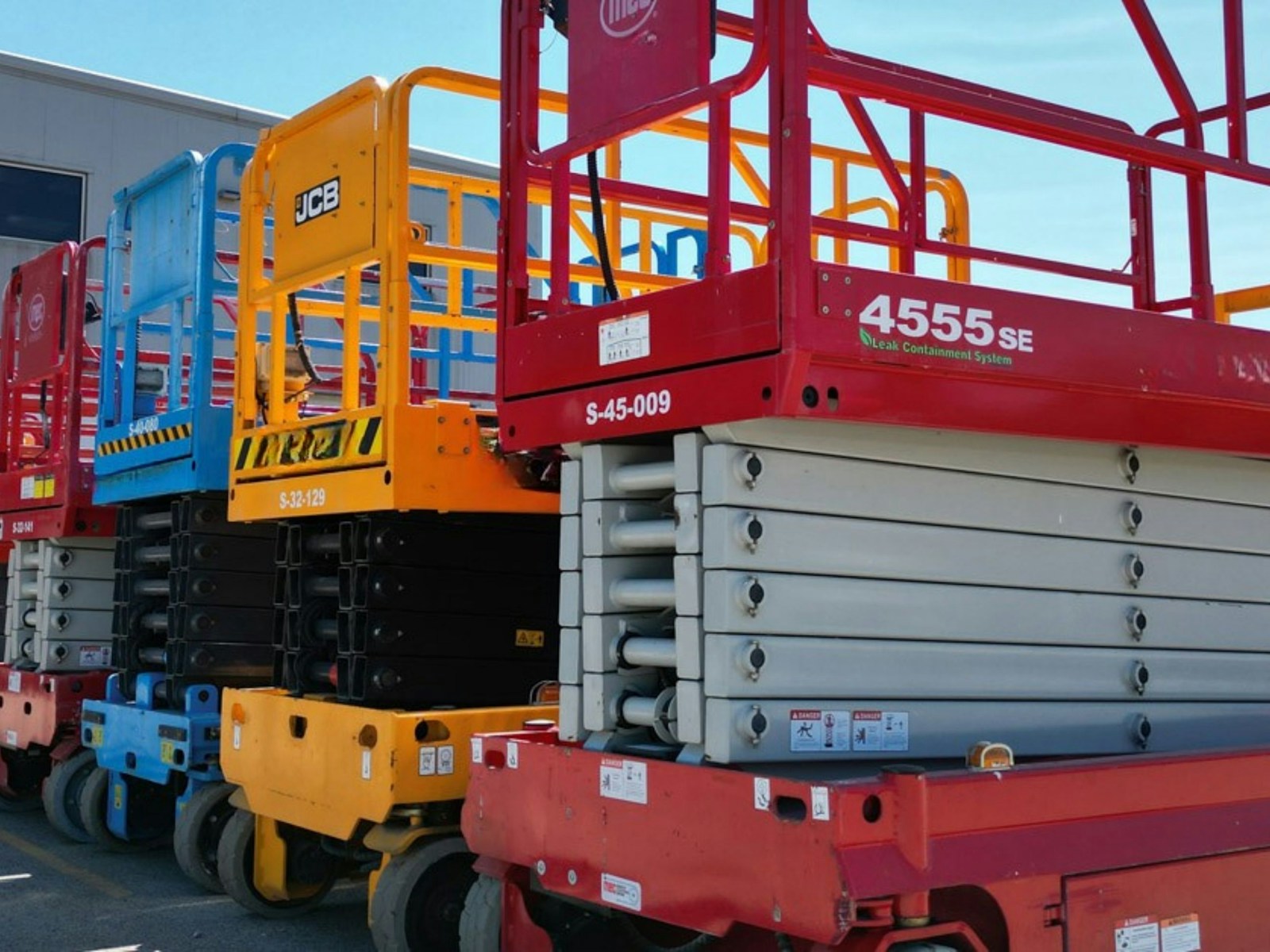Owning an RV is a thrilling adventure filled with road trips, camping under starry skies, and exploring the great outdoors. But, as an RV owner, you know well that this adventure comes with responsibilities. Being proactive with regular RV maintenance is not just a good habit; it’s essential for keeping your motorhome or travel trailer in top shape, helping you save on future expenses, cutting down repair costs, and ensuring safe travel.
Did you know that skipping routine RV maintenance can lead to costly repairs that may drain thousands of dollars from your pockets? By staying on top of maintenance, RV owners can save money over time by preventing expensive repairs. This guide offers an in-depth overview of everything you need to know about maintaining your RV, including tips, tools, and expert advice to help you avoid common pitfalls.

Photo by Boudewijn Huysmans on Unsplash
Why RV Maintenance Matters
Proper RV maintenance ensures your vehicle runs efficiently and safely throughout camping season and beyond. From extending the life of your RV roof to improving fuel economy and comfort, maintenance is key to keeping your beloved motorhome functional and adventure-ready. Regular seasonal RV maintenance is essential for keeping your RV in optimal condition throughout the year. Always consult the owner’s manual and the manufacturer’s owner’s manual for specific maintenance schedules and procedures to ensure proper care of your RV and its components.
A Quick Look at What You’ll Learn:
- A comprehensive RV maintenance checklist
- The 2-2-2 and 10-year rules explained
- How often should you service your RV
- Tips to avoid costly repairs
- The benefits of professional RV transport services by Interstate Haulers
Pre-Trip RV Maintenance
Before you hit the open road for your next adventure, taking the time to perform pre-trip RV maintenance is essential for keeping your vehicle in top shape and ensuring a worry-free journey. Start by checking your tire pressure and adjusting it according to the manufacturer’s owner’s manual—properly inflated tires not only improve fuel economy but also help prevent blowouts and uneven tread wear. Next, give your RV roof a thorough inspection, looking for any signs of damage, cracks, or worn roof seals. Addressing these issues early can help you avoid water damage and costly repairs down the line.
Don’t forget to inspect your brakes and have them serviced if needed; well-maintained brakes are crucial for your safety, especially when traveling with a fully loaded RV. Test all your safety equipment, including smoke detectors and carbon monoxide detectors, to make sure they’re working properly. A quick check can make all the difference in an emergency.
It’s also wise to perform a bi-annual flush of your freshwater tank to keep your water system clean and free from bacteria. Check your RV’s electrical system, including the battery and generator, to ensure everything is functioning as it should. If you’re unsure about any step, consult your owner’s manual for model-specific recommendations. By following these pre-trip maintenance tips, you’ll maintain your RV in peak condition and set yourself up for a safe, enjoyable road trip.

Photo by Daria Tkachenko on Unsplash
Regular RV Maintenance Checklist
Your RV is like a residential home on wheels, and maintaining it requires attention to both vehicle mechanics and living-space systems. Most RVs come equipped with multiple holding tanks, such as fresh water, grey water, and black water tanks, as well as other systems that require regular attention. Use this checklist to keep your RV working properly. It’s also important to know where to purchase the right parts and accessories to ensure effective RV maintenance.
Roof Inspection
Your RV roof protects against weather and external damage. Regularly perform a roof inspect to check for cracks, tears, or water damage and treat any weak spots immediately to prevent leaks. Check the roof seals and caulking for wear and tear, especially around vents, skylights, and slide-outs. Use cleaning products and sealants that are specifically designed for RV roofs to ensure effective maintenance.
RV Tires
Regularly inspect your RV tires for uneven tread wear and damage. Tire pressure directly impacts fuel economy and your RV’s overall safety, so use a tire pressure gauge to ensure all tires are inflated to the manufacturer’s recommendations. Don’t forget to tighten those lug nuts before hitting the road.
RV Batteries
Your RV batteries are the heartbeat of the electrical system. Test and inspect them regularly, cleaning any corrosion on terminals and ensuring water levels are maintained. Remember to check the anode rod in your water heater, as it protects the system from corrosion.
RV Generator
Your RV generator helps power appliances and systems while you’re on the move. A biannual flush keeps it running efficiently. Follow the manufacturer’s owner’s manual for specific maintenance routines and replace filters as needed.
Hydraulic System
Inspect your RV’s hydraulic system and replace hydraulic filters on a regular basis to maintain slide-outs, leveling jacks, and other crucial functions.
RV Tanks
Most RVs have black, gray, and fresh water holding tanks that require year-round attention. Use specialized cleaners and a bleach and water solution to sanitize the tanks, and ensure the black tank is flushed regularly to avoid odor issues. Steel wool can also help maintain your tank connectors and fittings.
Safety Equipment
Inspect your RV safety equipment such as fire extinguishers, smoke detectors, and carbon monoxide detectors. Replace their batteries or upgrade systems as needed.
By following this routine maintenance checklist, you can keep your RV in top condition and avoid unwanted surprises during your next trip.
RV Electrical System Maintenance
Keeping your RV’s electrical system in top working order is vital for both safety and comfort on the road. Regular maintenance can help you avoid costly repairs and unexpected breakdowns. Start by checking your RV battery on a regular basis—clean the terminals, check water levels, and ensure the battery is holding a charge. Inspect all electrical wiring and connections for signs of wear, corrosion, or loose fittings, as these can lead to system failures or even fire hazards.
Your RV generator is another key component; test it before each trip and follow a routine maintenance schedule that includes oil changes and filter replacements, as outlined in your owner’s manual. Investing in a surge protector is a smart move to safeguard your RV’s electrical system from power surges and voltage spikes, especially when connecting to unfamiliar campground hookups.
If you encounter any issues or are unsure about a particular aspect of your electrical system, don’t hesitate to consult a certified RV service technician. Their expertise can help you address problems in a timely manner and prevent more serious repairs. Keep a detailed record of all electrical system maintenance to stay organized and ensure nothing is overlooked. By regularly inspecting and maintaining your RV’s electrical system, you’ll enjoy peace of mind and reliable power throughout your travels.
Understanding the 2-2-2 Rule for RV Travel
“Drive no more than 200 miles a day, arrive by 2 PM, and stay for at least 2 nights.” If this strategy sounds like good advice, you’ve just discovered the 2-2-2 rule. Adopting it helps prevent driver fatigue and ensures you have enough time to enjoy your stops instead of merely breezing through.
A personal story about this rule highlights its importance. A couple I met during a Winnebago rally shared that following the 2-2-2 rule transformed their travels. They could explore more local attractions and enjoy better rest between destinations, making their roving lifestyle significantly more enjoyable.
The 10-Year Rule for Campgrounds
The 10-year rule is a policy followed by certain campgrounds to maintain their aesthetic appeal and safety standards. RVs older than ten years may require additional inspection or might not be allowed at all.
Make sure your RV meets appearance standards, and always call ahead to confirm policies. Keep up with routine maintenance to ensure your RV looks its best, regardless of its age.

Photo by Daniel De Los Santos on Unsplash
How Often Should an RV Be Serviced?
Most manufacturers recommend annual servicing to ensure every part of your RV is working properly, but the frequency may vary. For instance, motorhomes often require an oil change every 3,000 to 5,000 miles. At the start and end of the camping season, perform a thorough inspection to identify potential issues.
Some key systems to prioritize:
- Brakes serviced before major trips
- AC and heating units checked seasonally
- Water damage assessment during inspections
- Regularly inspect vehicle components like belts and hoses
Referencing your owner’s manual provides tailored insights for your specific RV model, whether it’s a Jayco, Airstream, or any other brand.
Avoiding Costly Repairs
Improperly loading your RV, neglecting tire pressure, or failing to keep your brakes serviced can lead to costly repairs. A customer shared with us how skipping an RV roof inspection resulted in severe water damage, costing $5,000 to fix.
Avoid such financial stress by:
- Adhering to a strict maintenance schedule
- Investing in professional inspections
- Storing your RV and generator properly during periods of inactivity, including following recommended storage practices such as running and servicing the generator and maintaining RV systems while in storage to prevent issues and ensure readiness for use
Interstate Haulers for RV Transport
Need help moving your RV to a new destination? Whether it’s delivering a newly purchased camper or relocating for your next adventure, sometimes professional RV transport is the best solution.
Before transport, make sure to check and seal all doors to prevent moisture intrusion and leaks during the move.
Why Choose Interstate Haulers:
- Nationwide network of licensed and experienced drivers
- Expertise in RV trailer, boat transport, and industrial trailer hauling
- Excellent customer reviews, like this one from Brent Pickett: “The team was super helpful and responsive, ensuring timely delivery and exceptional care.”
Learn more about their RV transport services here.

Photo by Jacob McGowin on Unsplash
Maintain Your RV for Years of Adventures
Proper RV maintenance isn’t just a responsibility; it’s an investment in your freedom to explore without limits. By following the tips in this guide, you’ll protect your RV from costly repairs, enhance its performance, and enjoy peace of mind while traveling.
For RV owners who want to learn hands-on maintenance skills and stay up-to-date with best practices, the National RV Training Academy is a valuable resource offering practical, accelerated learning programs.
Looking for a trusted partner to help transport your RV or prevent unforeseen breakdowns? Check out Interstate Haulers to ensure your RV always reaches its destination safely.
Happy travels and safe adventures!
Ways to Learn More About RV Maintenance
Staying informed about RV maintenance is essential for prolonging the life of your vehicle and ensuring safe travels. Here are ten reliable resources to help you learn more about RV maintenance:
- Manufacturer Manuals – Refer to your RV’s owner’s manual for specific guidelines and recommendations.
- Maintain My RV – Access videos and articles focused on RV upkeep at Maintain My RV.
- Family Motor Coach Association (FMCA) – Discover tips and resources on RV care at FMCA.
- YouTube Tutorials – Channels like RVgeeks offer step-by-step maintenance tips.
- RV Forums – Join communities like iRV2 Forum to ask questions and share experiences.
- Workshops & Seminars – Attend hands-on training through programs like those offered at RV rallies or local dealerships.
- Good Sam Club Blogs – Read expert advice and maintenance tips at the Good Sam Blog.
- Online Courses – Enroll in courses like the RV Maintenance Technician Training provided by NRVTA.
- Maintenance Apps – Use apps such as Togo RV to track maintenance schedules and discover helpful services.
- Books on RV Care – Explore well-reviewed books like “The RV Owner’s Handbook” for comprehensive guidance.
Dive into these trustworthy resources to enhance your knowledge and become confident in managing your RV’s maintenance needs.




